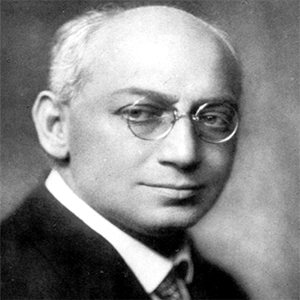Sandor Ferenczi’s concept of the dialogue of unconsciouses: a clinical example

Submitted: August 1, 2022
Accepted: April 17, 2023
Published: May 2, 2023
Accepted: April 17, 2023
Abstract Views: 1032
PDF: 260
HTML: 43
HTML: 43
Publisher's note
All claims expressed in this article are solely those of the authors and do not necessarily represent those of their affiliated organizations, or those of the publisher, the editors and the reviewers. Any product that may be evaluated in this article or claim that may be made by its manufacturer is not guaranteed or endorsed by the publisher.
All claims expressed in this article are solely those of the authors and do not necessarily represent those of their affiliated organizations, or those of the publisher, the editors and the reviewers. Any product that may be evaluated in this article or claim that may be made by its manufacturer is not guaranteed or endorsed by the publisher.
Similar Articles
- Giulia Bassi, Elisa Mancinelli, Daniela Di Riso, Adriana Lis, Silvia Salcuni, Separation anxiety in a community sample of Italian emerging adults and its relationship with dimensions of borderline personality , Research in Psychotherapy: Psychopathology, Process and Outcome: Vol. 24 No. 1 (2021)
- Giulia Gagliardini, Salvatore Gullo, Edgardo Caverzasi, Annalisa Boldrini, Stefano Blasi, Antonello Colli, Assessing mentalization in psychotherapy: first validation of the Mentalization Imbalances Scale , Research in Psychotherapy: Psychopathology, Process and Outcome: Vol. 21 No. 3 (2018)
- Elena Faccio, Francesca Turco, Antonio Iudici, Self-writing as a tool for change: the effectiveness of a psychotherapy using diary , Research in Psychotherapy: Psychopathology, Process and Outcome: Vol. 22 No. 2 (2019)
- Alexander Kriss, Howard Steele, Miriam Steele, Measuring Attachment and Reflective Functioning in Early Adolescence:An Introduction to the Friends and Family Interview , Research in Psychotherapy: Psychopathology, Process and Outcome: Vol. 15 No. 2 (2012)
- Petr Doležal, Michal Čevelíček, Tomáš Řiháček, Jan Roubal, Roman Hytych, Lucia Ukropová, Why did she leave? Development of working alliance in a case of psychotherapy for depression , Research in Psychotherapy: Psychopathology, Process and Outcome: Vol. 22 No. 2 (2019)
- Lisa Wallner Samstag, J. Christopher Muran, Ruptures, repairs, and reflections: contributions of Jeremy Safran , Research in Psychotherapy: Psychopathology, Process and Outcome: Vol. 22 No. 1 (2019)
- Ana Catarina Nunes da Silva, António Branco Vasco, Jeanne C. Watson, Alexithymia and therapeutic alliance: a multiple case study comparing good and poor outcome cases , Research in Psychotherapy: Psychopathology, Process and Outcome: Vol. 21 No. 2 (2018)
- Silvia Salcuni, Vittorio Lingiardi, Free research contributions during pandemic period: research is still alive , Research in Psychotherapy: Psychopathology, Process and Outcome: Vol. 24 No. 1 (2021)
- Paul Schröder-Pfeifer, Alessandro Talia, Jana Volkert, Svenja Taubner, Developing an assessment of epistemic trust: a research protocol , Research in Psychotherapy: Psychopathology, Process and Outcome: Vol. 21 No. 3 (2018)
- Francesco De Bei, Diego Rocco, Silvia Salcuni, Introduction to the Special Section on “The Role of Psychotherapy Research in Psychotherapy Training: Mutual Influences and Relations” , Research in Psychotherapy: Psychopathology, Process and Outcome: Vol. 22 No. 3 (2019)
<< < 21 22 23 24 25 26 27 28 > >>
You may also start an advanced similarity search for this article.

 https://doi.org/10.4081/ripppo.2023.655
https://doi.org/10.4081/ripppo.2023.655





